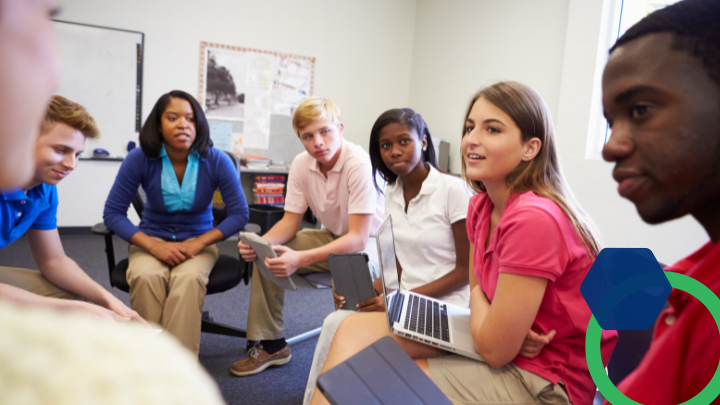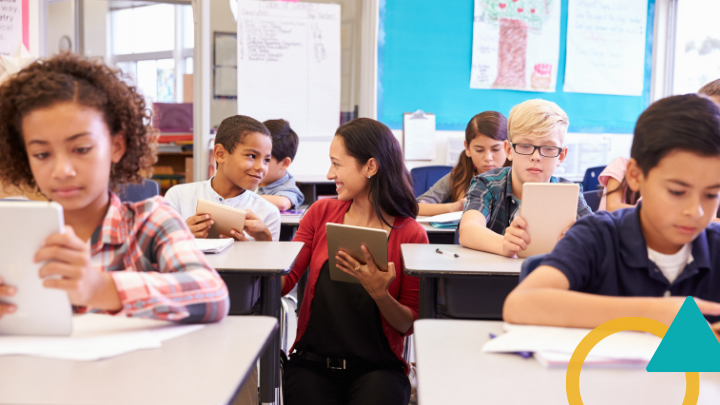As the news of the crisis in Ukraine reaches us, we know that this news may be challenging for teachers and students alike. As classrooms navigate the understandable questions and emotions that conflict and humanitarian crisis can bring, we at BetterLesson want to provide a supporting guide for key considerations and resources to help navigate the needs of all stakeholders. We recommend this guide from the San Diego County Office of Education as a starting point. Our team has identified 4 categories to support educators at this time: Wellbeing, Social-Emotional and Trauma-Informed Practices, Discourse, and Resources on Ukraine.
Wellbeing
Just like the oxygen mask on a plane, we need to ensure we are attuned to our own wellness and mental health as adults in order to better provide a safe learning environment for students. Leaders and educators should make time for self-care, and processing together what they are witnessing. Consider bringing school communities together for opt-in reflective spaces and encouraging community solidarity and healing.
Social-Emotional Learning and Trauma-Informed Practice
Students will need support navigating their emotions and anxieties, and many may be experiencing real trauma from the events unfolding in Ukraine. Some educators and students might be personally affected by the daily events and long-term consequences of this war. Images of war can be frightening to students even if this is not part of their lived experience. We encourage educators to leverage Social Emotional and Trauma-Informed practices to help create classrooms that feel safe while supporting students to understand themselves more effectively through self-awareness and relationship building. Consider spending time with educators to highlight strategies that can reinforce the creation of an inclusive and responsive classroom:
- BetterLesson: Mindfulness discusses ways to embed mindfulness practices into the classroom to help students focus and relax
- BetterLesson: Thresholding is a strategy to build a positive start to each class period through a human interaction
- BetterLesson: De-Escalation provides ideas for how to de-escalate with students who may be experiencing trauma or heightened anxieties
- BetterLesson Blog: Cultivating Class Culture
- Creating, Supporting, and Sustaining Trauma-Informed Schools: A System Framework
Discourse and Reflection
It’s important to create space for students to process what they are hearing and seeing through writing, discussion, and reflection. These can be powerful ways to acknowledge the terrible reality of conflict, while also reinforcing the need for positive change in the world. As always, we need to consider the age of students involved and provide guidance for educators on what is appropriate developmentally. Consider how to support educators with setting up opportunities for appropriate discussion and reflection of current events:
- Having Conversations about Challenging and Controversial Topics outlines how to talk about topics like prejudice, implicit bias, racism, and social injustices
- Facing History: Fostering Civil Discourse has strategies for creating norms and expectations with students to promote healthy discourse
- Learning for Justice: When Bad Things are Happening provides 5 steps for educators to consider based on the Department of Homeland Security’s Psychological First Aid Framework
- Learning for Justice: Let’s Talk Guide showcases ways to build a foundation for discussion of challenging topics
- Today: How to Talk to Children About War provides an expert’s view of the appropriate processes for different age groups
Resources on Ukraine
The conflict in Ukraine is all over the news and social media where students can consume it easily but its ubiquity can lead to confusion and overwhelm. Supporting students to understand the conflict’s origins can help them put this moment into perspective, and discuss these events from a place of increased awareness and understanding. Consider engaging students in broader discussions about foreign policy, international institutions, or appropriate articles. In addition, consider focusing on building empathy with everyday Ukrainians as a lens to understand the disaster brought on by warfare.








